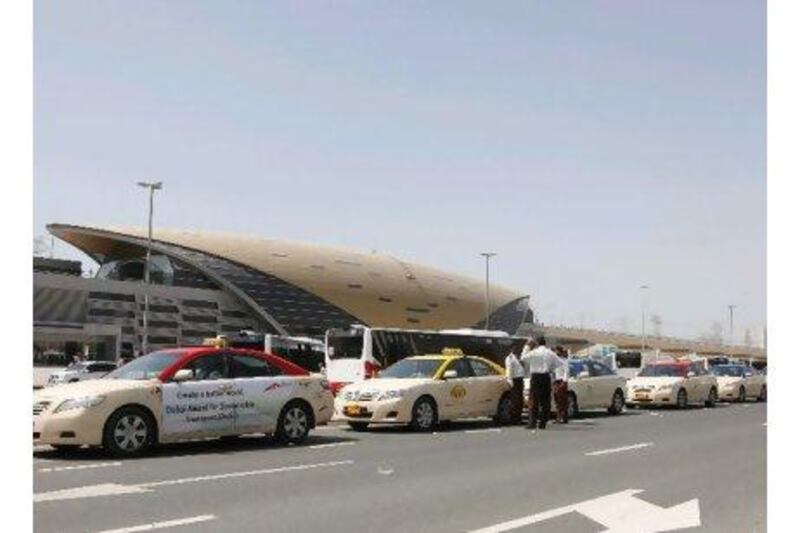I find it very discouraging to see the queues start again at petrol stations in Sharjah (Fresh petrol queues in Sharjah, September 10).
The petrol situation there was not bad over the summer, but everyone remembers that last spring the problems started small, and grew into a difficult situation.
We were hopeful that the problems would be solved by the time demand picked up again, with the efforts by Adnoc. But maybe that wasn't enough.
John Jenkins, Sharjah
Arab League too good to Assad
Re: Why did Syria postpone Arab League visit? (September 9).
With all due respect to the Arab League initiative, I do not think it serves the interests of Arabs.
Throwing a lifeline to this violent man Bashar Al Assad stirs the street against the Arab League and encourages Mr Al Assad to kill more people (40 were killed the day after word of the initiative was published).
Syrians wish to see Mr Al Assad depart his post to achieve freedom from violence and one-party rule.
Farid Ghadry, US
Different view on September 11
Meaning no disrespect to anyone, I want to say that the media have been paying too much attention to the September 11 anniversary ('War on Islam' had victims but no victors, September 10).
The total terrorism death toll around the world in the last decade, including those killed by fanatics of all causes in all countries, is far lower than the number killed by Aids, the number killed by other infectious diseases that could be prevented for a few dollars, the number killed by famine, the number killed because Haiti has no building standards - and I could go on.
These causes, like terrorism, demand a political and policy response. But where is the concern for those victims, and those who will be the next to die?
Edmund Dorf, Dubai
In the column With the fall of the Twin Towers, politics of fear rose up (September 9), I get the first two points, about the fear which led to a "clash of civilisations" narrative.
But the third point concerning the "new atheism" is hardly one that has gained credible traction anywhere.
Rob Clement, Oman
The USA should understand that their 9/11 happens 24/7 for Palestine and Iraq.
Ayad Abas, Abu Dhabi
Air India should improve service
I can agree with your report India wants to restrict Gulf flights to help Air India (September 9) that Air India's most profitable routes involve the Gulf. No wonder: their fares are high and service is low.
The success of the UAE's carriers is a clear indication that Air India is not providing quality service.
There is a reason why people choose other carriers over Air India Express. Indian policymakers should probably look into that, rather than exploiting the south Indian community in the Gulf.
If they are going to force people to fly Air India Express then they might as well call it a "closed sky" policy.
Mohammad Fuad Mustafa, Abu Dhabi
Metro give choice to passengers
Your story Taxi drivers unsure if Dubai Metro Green Line is boom or bust (September 8) reminds me that there was a time in Dubai, before the Metro, when the taxi driver was king.
People waving to a taxi were unsure whether the driver would stop, and if he did we were unsure if he would go where we wanted.
I am now happy that the customer is king, as should be the case all the time in a flourishing economy. This is what competition does to all, and the beneficiary is always the consumer.
Amit Bhattacharjie, Dubai
To fight bombers, protect the people
I refer to Security forces under fire for failure to stop Delhi court bombing (September 9).
As usual, politicians and intelligence services have vowed to punish those behind the Delhi blast, but recurring terrorist incidents show that India needs better preparedness.
Whereas the life of common people is always at risk, top politicians and their families enjoy massively costly security protection.
After every incident there is an inquiry commission and report, but these can take years to reach a conclusion, by which time many more such cases have occurred.
It is high time India changes its intelligence strategy to tackle the rising terror menace.
And to be successful, a political consensus is needed, and that requires a renewed mechanism to ensure the safety of ordinary people.
Ramachandran Nair, Oman





